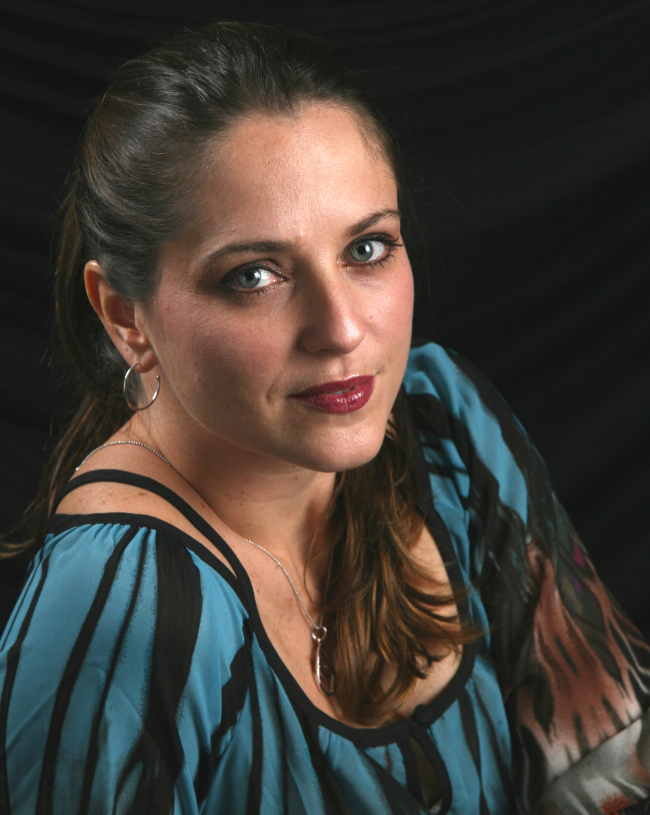What are repressed memories and are they real?

Blocking trauma is a common coping mechanism for child sexual abuse survivors. It’s how some of us protected ourselves when we didn’t have the skills or resources to handle what was happening to us.
So that’s good! Or at least it was good at the time. That’s how we survived.
The problem is, later, when these repressed memories and emotions start coming to the surface, it’s very disorienting. It doesn’t make sense. Your logical brain can’t reconcile these thoughts with your *remembered* past. So, survivors often think they are making these “new” memories up.
To make matters worse, often, repressed memories don’t come back fully or in context. Instead, they feel fuzzy or vague, or you only get fragments that you can’t piece together into a cohesive timeline.
This doesn’t mean that nothing happened, or that your mind is playing tricks on you. It just means that it’s going to take time for these memories to come back. This is good, because it’s a lot to process when they do start bubbling up. But this slow unfolding can create confusion, angst, and frustration.
Recovering repressed memories
More than a few times, survivors have come to me asking how they can facilitate the retrieval of their memories. They want to find the truth about what happened to them. They want to dig in and get their answers once and for all.
But please hear me when I say,
“Digging” for memories is not recommended. Don’t do it!
When you are ready, whatever needs to come up and out will surface. Until then, do your best to take care of yourself now, as you are.
Step away from toxic and dangerous people in your life, and only allow people you trust into your inner circle. Improve your relationships by learning healthy communication skills, taking personal responsibility for your actions, and setting healthy boundaries. Find a good trauma-informed therapist or other safe healer, coach or support person who understands trauma. And don’t underestimate the power of a good support group.
Often, once you have these healthy resources and a stronger support system in place, that’s when more memories might start to surface. Plus, as we get older, we have more internal resources from lived experience as well, and eventually, what needs to come up will.
Repressed memories are not the same for everyone.
Repressed memories can come back as audio, visual, body memory, emotional state, or any combination of these. Some survivors’ memories might be clear enough to recognize specific details, people or places, while others’ might be cloudy and indiscernible. It just depends on the person and their history.
As an example, my most intense recovered memory was more like a visceral, body-only flashback, except that while the memory was unfolding, I was aware that I was in my own home, as an adult.
What brought on the memory was really quite benign. My partner accidentally put his thumb on a pressure point on my lower leg and that was it. Suddenly, things were happening mentally, emotionally and physically.
It was as if a switch had been flipped. One minute, I was relaxed and spending time with someone I loved and trusted. The next minute, I am processing a whirlwind of thoughts, emotions and body memory.
It was pretty crazy and very intense. But luckily, my partner quickly realized what was happening, and he knew what to do. He didn’t interfere. He just stayed calm and stayed with me while the experience ran its course. Even though I was terrified, and the experience itself was quite grueling, it was reassuring just knowing he was there with me.
Another thing that really helped was that during the whole process, there was always a part of my mind that was observing and aware, a watcher of sorts, even while the rest of me was freaking out a bit as my body replayed this previously buried childhood trauma.
But even after all of that, I still had no idea where, when or who had harmed me, because I had no visual or auditory memory. I only had body memory and fear.
And sometimes, that’s all you are going to get… snippets. You aren’t going to figure out the clues and solve the crime. You aren’t going to know everything.
But that’s okay! (Maybe even better than okay, for some of us!)
You don’t need to know all the details in order to heal.
The specifics aren’t important. What’s important is how you react.
How you respond to repressed memories matters.
Below are a few strategies to keep you moving forward on your healing path when repressed memories come up:
1) When a repressed memory is coming up, become an observer of it as it unfolds.
You will still feel all the feelings. But at the same time, you can remind yourself that you are safe here and now, and that you are simply being shown what has been hidden from you for so long–so that you can process it and release it.
Think of it as a telling or sharing. Your body and mind are trusting you, and sharing their hidden secrets with you, so that they can finally be free. So that you can be free.
When you are able to allow them to do that, and you allow those memories to be revealed to you, you are also allowing that trapped energy to dislodge and flow through and out of your body. The trauma gets un-stuck, so that you can process it.
Sometimes the relief is almost instant! Yes, it’s exhausting in the moment. But the next day when you wake up, you feel lighter. Other times, it can take a while to process, particularly if you are a more heady person who spends a lot of time thinking trying to sort through your emotions. This will take longer than someone who just lets their emotional pain unfurl and discharge straight off their body (even though they might feel like a hot mess as it’s unfolding).
Either way though, it’s healthier to get it out. So let it flow! Let those memories come up, and get that crap out of your body.
2) Try not to judge the memories (or yourself), or shut them down.
Trying to stuff these memories back in, medicate them, push them out of your mind, deny them, or otherwise dismiss them will only slow your recovery.
Criticizing yourself, or how much you remember (or don’t remember), will also work against you and slow your recovery.
Allow any memories that come up to simply be what they are, nothing more and nothing less. They are not right or wrong. They are how your child-self interpreted what happened to them.
Plus, when these memories were captured and stored, you were in the middle of trauma just trying to survive. So don’t get lost in the weeds, fretting about the absolute accuracy of every detail.
This isn’t about perfection: it’s about releasing.
3) Treat your memories and yourself with compassion, and act as if they are real–even if they feel very surreal.
While the concept is simple, this may not be an easy task. It can be quite dumbfounding when your mind suddenly reveals something as horrible as child sexual abuse–that you never remembered for twenty, thirty, or even forty-plus years of your life.
But what do we always say?
“If a survivor discloses that they were abused, BELIEVE THEM!”
In this case, that means *believe yourself*. Believe your own mind revealing its secrets to your now adult-self. Tell that wounded part of you, “I believe you,” and then follow that up with appropriate actions.
What would you do to help yourself heal if you knew these memories were true?
Do it! This will accelerate your healing.
When I finally started acting as if my recovered memories were true, I started to heal. I can’t prove my memories are true. I don’t think my family believes they are true. Sometimes, it’s hard for me to believe they are true. But nothing else ever helped until I finally accepted that something did happen to me and I wasn’t making it up. And when I chose to act accordingly, I healed my life.
Treat your recovered memories as if they are true so that you can heal!
4) You don’t need to figure everything out on your own.
There are communities to support you, therapists, advocates, and all kinds of beneficial alternative healing modalities that can be very helpful!
Explore! See what feels right and works well for you.
For some people therapy might work miracles. For me, I used entirely alternative methods and advocacy work for my healing, and today my life is better than ever!
There is no one right answer for everyone.
You do you! But whatever you choose, be kind to yourself.
Author: ASHA LIGHTBEARER

ASHA LIGHTBEARER
Light Path Wisdom – Alchemy & Healing
Founder, HelpforCSA – The Fiona Project / HelpforSurvivors.org
Asha is a CSA survivor who has been helping clients find their confidence and reclaim their lives for over a decade. Her sessions are transformative and engaging, filled with imagination and creative healing techniques like inner child and shadow work, persona posturing, and more. With Asha, healing isn’t just a process; it’s an adventure of self-discovery and empowerment.
“Creativity and imagination are the sweet spots for healing!”
~ Gita Vaid, MD, Co-Founder of the Center for Natural Intelligence
Also check out my award-winning Fiona music video for CSA survivors!